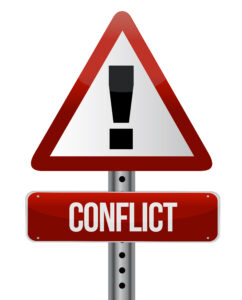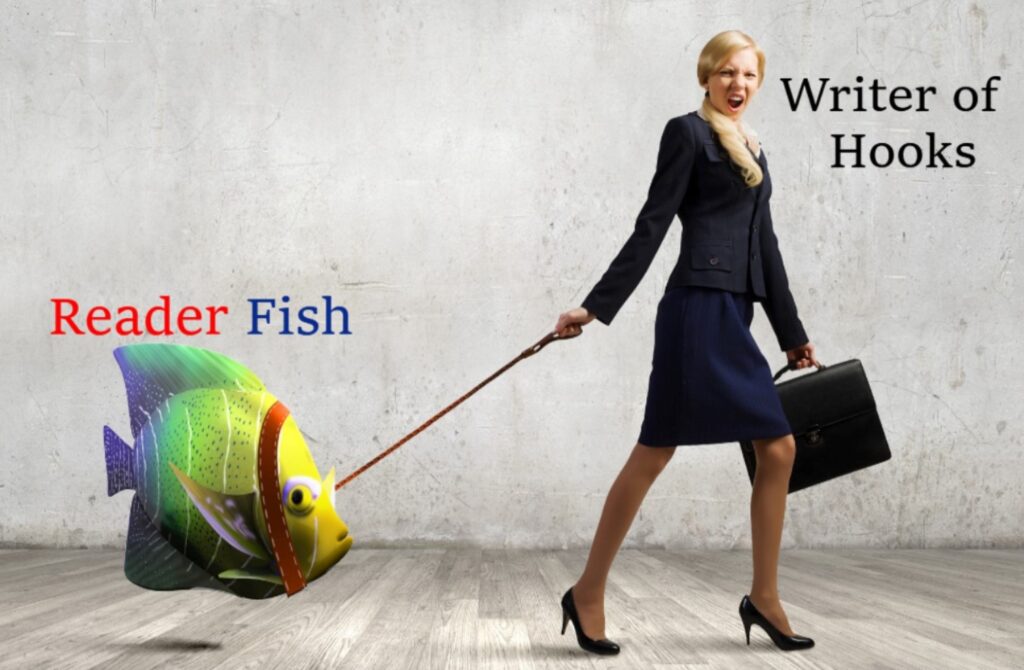Sep 6 2021, 1:00 pm in Rules

I present to you, in all their glory, Elmore Leonard’s 10 Rules for Writing.
- Never open a book with weather.
If it’s only to create atmosphere, and not a character’s reaction to the weather, you don’t want to go on too long. The reader is apt to leaf ahead looking for people.
Rita here: I think there are exceptions like: It was a bright and sunny day on a planet where the last bright and sunny day was eight hundred years ago.
- Avoid prologues.
They can be annoying, especially a prologue following an introduction that comes after a foreword. But these are ordinarily found in nonfiction. A prologue in a novel is backstory, and you can drop it in anywhere you want.
- Never use a verb other than “said” to carry dialogue.
The line of dialogue belongs to the character; the verb is the writer sticking his nose in. But said is far less intrusive than grumbled, gasped, cautioned, lied.
- Never use an adverb to modify the verb “said” …
…he admonished gravely. To use an adverb this way (or almost any way) is a mortal sin.
- Keep your exclamation points under control.
You are allowed no more than two or three per 100,000 words of prose.
- Never use the words “suddenly” or “all hell broke loose.”
This rule doesn’t require an explanation.
Rita here. I purchased a thriller audio book ‘everyone’ was talking about. I listened and had to buy the book. Why? I wanted to count how many freaking sentences the author used suddenly and quickly. Quite honestly, it was easier to count the sentences NOT containing those words. It was edited by a NY pub. OMG!
- Use regional dialect, patois, sparingly.
Once you start spelling words in dialogue phonetically and loading the page with apostrophes, you won’t be able to stop.
- Avoid detailed descriptions of characters.
Rita again. I like this rule.
- Don’t go into great detail describing places and things.
Even if you’re good at it, you don’t want descriptions that bring the action, the flow of the story, to a standstill.
And finally:
- Try to leave out the part that readers tend to skip.
Think of what you skip reading a novel: thick paragraphs of prose you can see have too many words in them. What the writer is doing, he’s writing, perpetrating hooptedoodle, perhaps taking another shot at the weather, or has gone into the character’s head, and the reader either knows what the guy’s thinking or doesn’t care. I’ll bet you don’t skip dialogue.
Rita here. (will that chick ever go away?) Three books this summer, THREE, I skipped more than read.)
My most important rule is one that sums up the 10.
If it sounds like writing, I rewrite it.
I can’t allow what we learned in English composition to disrupt the sound and rhythm of the narrative. It’s my attempt to remain invisible, not distract the reader from the story with obvious writing.
Rita here dancing around – Yes. Yes, and YES. I would rather read a book that has some typos, maybe a plot problem mixed with a couple of continuity errors that is a great story with a brilliant voice than some grammatically correct, with all the proper punctuation, book that has been so stripped of voice by editing that it becomes a chuckawalla book (a book you chuck against the wall and move on)
What do you think of the rules?
Rita
Sep 6 2021, 10:10 am in Conflict, Goal, Motivation
Successful books and successful writers have Goals, Motivation, and Conflicts.
Think about it. We use GMC to build our books. As writers we are no different from the characters we set up in stories. Writers have Goals just as our characters have. We have the Motivation as to why we want to achieve our goals as do our characters. And we have the internal and external Conflict standing in the way of achieving our goals preventing us from reaching those goals.

It is proven individuals with goals are significantly more successful than those without. Think of your writing career as writing a book. Do your characters wander around a story doing nothing? Nope. Your characters have purpose, a story goal. If a character’s goal is to be the president of the US, she will have to do some things, have a plan, take steps to reach that goal. What happens in a book is plot. What happens in your life is planning. As authors, we want to write the best book possible, be published, have bestselling books so we take steps and make plans in order to be successful. Ding, ding, ding. GOAL.
What’s your plan to reach the goal of writing that great bestselling book? This is important. It’s said that the main reason primary goals fail is because there are no secondary goals made. By this, I mean if your primary goal is to write a book your secondary goal could be to put your butt in the chair and write so many words every day. You may say, “well, duh, of course.” But, you would be amazed at how many people do not make secondary goals. To me this is same as saying you want to go to Paris and standing on the curb in front of your house expecting a A380 to land and take you there.
To reach your primary goal and keep you on track develop daily, weekly, monthly, yearly goals. Be realistic. Be honest. Remember life can and does reach out and head smack you. Forget what your friends are doing. Decide what it will take for YOU to reach your goals. Don’t say you’re gonna write 5000 words a day when you know you only have time to write 500. You may discover reaching a goal can mean making a decision about what you need to give up. How many times have you said you don’t have time to write? Examine how you use your time. Perhaps cutting down time spent cruising the Internet or, hours watching TV.
Our characters goals are define by what they want and why.

A writer’s reason, or motivation, for writing and being published is important to acknowledge. Do you write for fame? Fortune? To be labeled a successful author? Because you’d die if you don’t write?
If it is fame and fortune take a step back and define what fame, fortune and successful author means to you. As in a book, motivation has a direct effect on your goals.
Is your motivation to see your print book on the end display at a brick-and-mortar store?
Goal. Research editors and publishing houses.
Motivation. You want to prove to all the naysayers who said you couldn’t write a book that you can and did.
Goal. Save money to rent a billboard and take full-page newspaper ads to say nanny-nanny-boo-boo to all of them.
Motivation. You promised your dear great-auntie you would write and publish the family history and self-publishing is the way you’re going.
Goal. Find a good editor. Learn about e-reader formatting and research cover artists.
What I’m saying is different motivation requires different goals. In a story, a character’s motivation keeps the middle from sagging. For the author, motivation keeps you from sagging in the time between you finished the book and it is published. It’s that time when you’re looking for representation and a publisher to buy the book or working hard at learning the ins and outs of self-publishing. No sugar coating here, it’s hard and staying focused and motivated is extremely important.

And now we come to…Conflict. We are told conflict, conflict and more conflict is what makes a good story. Conflict, conflict, and conflict in a writer’s life is not be the best thing. Unless of course you are a person who thrives on conflict. But, let’s face it, we all have conflict in one form or another. A day job sucking the life out of you. A day job, and caring for a family while you write. BTW if you do, I am in absolute awe. Family and friends giving you grief about your writing. A new baby, children home sick, or both. A daily battle with the fear of failing, or being successful. Maybe the evil internal editor follows you everywhere. Whatever it is, you are not alone. We all fight the enemy called conflict and totally eliminating it is not possible. In your story, your H&H work hard to overcome their conflict. Writers are not different. Work hard to identify your enemy. Adapt, improvise and overcome. Yeah, that’s what gung-ho marines say and it works here cause our battles are just as intense as theirs. Never underestimate your enemy. (Yes. I write suspense/thrillers)
You are the Hero or Heroine of your own story. Use Goal, Motivation and Conflict and ensure your very own successful happy ending.
Have Primary and secondary goals.
Define your motivation. Believe it will happen. Believe in yourself. YOU_are_a_writer.
Identify your conflict and make a plan to overcome it. Don’t let life ambush you.
Happy writing,
Rita
Sep 6 2021, 7:00 am in Editing, Self Editing, Wasted Phrases. Overused Words, Weak Words

As a writer my goal is to have the reader devour every word I put on the page and keep them turning those pages. I strive to make my writing crisp and to the point. Before a manuscript goes to my editor I go through several self-editing steps. First, I search for weak works and phrases, redundant words, and overused and unnecessary words. If I’m writing in a series I refer back to my series bible and make sure characters who appeared in previous books have the same color eyes and hair etc.
Next, I read the story aloud or have a program read it back to me. I catch many errors that way.
Some editing tips you may find useful.
Weak words and phrases.
Weak words drain the power from what you write. Watch for these weak words: even, very, some, sometimes, occasionally, before, maybe, really, often, especially, somewhat, actually, few, fairly, many, most, and just.
Some editors insist you never use just. I use just when I speak and consequently insert it into my work. It’s the first word I search to remove.
Wasted phrases and vague words.
Do you best to eliminate these wasted phrases: in order to, by means of, in fact, for the purpose of. and any other combination of wordy words that can be deleted and not missed.
The more specific a word or phrase is, the more information the reader has. The more information the reader has increases their connection to your story. We want to keep readers hooked. Using vague, useless wasted words unhooks them.
A little pregnant. Somewhat hungry. Halfway angry. Say they’re hungry or angry. Start to. Start is sufficient. He almost exploded. Either he did or didn’t.
Redundant words.
Using two words when, by definition, you’ve said it twice. For example, baby puppies. Puppies are babies. The word baby is unnecessary. Examples.
Flinch back
Crouch down
Stand up
Sit down
Climb up
Kneel down
Frigid ice
Honest truth
Burning hot
Short midget
Tall giant
Protrude out
New recruit
Free gift
Bare naked
Completely naked
Burn down
Recur again
Cancel out
Basic fundamentals
Definite decision
Completely destroyed
Eliminate common overused and unnecessary words.
Search for— that, was, had, the, as if, but, when, again, against, by. It isn’t possible to eliminate all these words. But when that is used 13 times in one paragraph. Well…..some can go.
Read your sentences with and without these words aloud. Decide which you prefer.
Happy editing.
Rita
Sep 5 2021, 3:02 pm in Craft, Emotion, Finding Your Writer's Voice, Voice

Let’s talk about VOICE. Not the TV show. The ‘voice’ that comes through in your story. Your book. And I don’t mean reading it out loud. I mean what YOU bring to the story.
Ever ask anyone to define voice? Most times I’ve gotten something along the lines of, I can’t tell you what it is exactly but I know it when I see/read it. Or, have you tried to explain voice to a newbie author?
Okay, so here’s my take on voice.
There are many layers of voice in a book.
First is the author’s voice. It’s how you, the author, tells the story. Ten people can be eye witnesses to an event. Each will give a somewhat different account. It’s according to their world view. The way their experience leads them to see and understand the world.
Edna St, Vincent Millay said: A person who publishes a book willfully appears before the populace with their pants down.
How come? Because in writing we reveal our own world view. How we feel about events going on around us. Not so much the events. A tree falling is a tree falling. But in the telling of the tree falling, you reveal feelings, perceptions and the process of dealing with the event. Your voice.
We don’t need to be a serial killer to write about one. The emotions and how you deal with them in your story reveals how you feel about serial killers. Your voice.
Second is the character’s voice. Each character having a distinct voice is important.
Ernest Hemingway said, “When writing a novel a writer should create living people; people, not characters. A character is a caricature.”
In order for me to do this I have to know my characters. I take James Scott Bell’s definition of voice to heart. “Character background and language filtered through the author’s heart and rendered with craft on the page =voice.”
To find a character’s voice I create a world view for them. Give them values, secrets, fears, misguided beliefs and so on. The characters become real to me. In the long rum each character has a little of the authors voice in them. I don’t see how it is possible to eliminate it.
In his book, The Emotional Craft of Fiction: How to Write the Story Beneath the Surface, Donald Maass says emotional craft underlies the creation of character arcs, plot turns, beginnings, midpoints, endings, and strong scenes. It is the basis of voice.
I do my best to create emotional connections between characters and the reader. Make them feel something. It’s said people will forget what you do, say, and write unless you make them feel when you do, say, and write something.
When someone says the voice wasn’t strong, I believe what they’re saying is the author failed to make them strongly feel something.
What do you think?
Rita
My go to books for studying voice are:
- The Emotional Craft of Fiction: How to Write the Story Beneath the Surface, Donald Maass.
- Voice by James Scott Bell.
- Finding Your Voice by Les Edgerton.
Since I said we all have our own world views we all more than likely have different views on what voice is. Feel free to share yours and any books you find helpful.
Oct 10 2020, 8:23 am in Book Hooks
Hooker?
Did you come to the blog thinking I was going to talk about a very old profession? If you did well……..
HA! Made you look. You fell for my HOOK.
I’m talking Writing Hooks. Hooking a reader into your story.
Grabbing them so hard and fast they can‘t put your book down.

So what is a HOOK?
Mary Buckham, in her lecture packet on Hooks and Pacing, says, “Hooks create an emotional response from a reader. Not just any emotional response but one that gets under your subconscious, raises a question and compels a reader to turn one more page in order to find an answer.
Hooks can, and should be used, in the opening sentence of a book, the opening paragraph, the end of the first page, the end of the third page, the end of the third chapter, opening a chapter as well as an ending one, at each new scene and, if you’re writing a series, the last sentence.”
In her book, How I Write, Janet Evanovich says: “The beginning is the most important part of the book. It must capture the reader immediately and force them to keep reading.”
In his book Hooked Les Edgerton says, “ If your beginning doesn’t do the job it needs to the rest of the story most likely won’t be read by the agent or editor or publisher you submit it to.”
Agent Donald Maas says hooks are vital to open your book, open each chapter, open each scene, and end the book. The best books contain one or more of twelve different hooks.
* Action or danger
* Overpowering emotion
* A surprising situation
* An evocative description that pulls a reader into a setting
* Introducing a unique character
* Warning or foreshadowing
* Shocking or witty dialogue
* The totally unexpected
* Raising a direct question
Still not convinced hooks are important? Take five of your favorite books from the shelf and read the first paragraph. Is there a hook? Does the end of the first chapter have a hook? I looked at 20 of my favorites. All have hooks and all but a handful had the story GMC in the first pages.
My very favorite opening is Michael Connelly’s The Brass Verdict. It completely lays out the story.
“Everybody lies.
Cops lie. Lawyers lie. Witnesses lie. The victim lies.
The trial is a contest of lies. And everyone in the courtroom knows this. The judge knows this. Even the jury knows this. They come into the building knowing they take their seats in the box and agreed to be lied to.”
There is an Eloisa James book, (Historical) the name of the book escapes me now, that begins “I didn’t mean to marry them both.” Brilliant. The reader knows what this book is about instantly.
Does your opening immediately draw the reader in? Don’t know? If you open with a character talking about grocery lists or what’s on TV, probably not. Your opening signals what the rest of the book is about.
Openings don’t have to be explosions, fires, or murders. Although I do like those. It does need to make the reader want to read on and on and on. You only have a few pages to ‘hook’ an agent, editor, and most important, your readers.
Make the best of your first pages. In the first paragraph drag the reader in with a grappling hook, use a spinner to end the first page. End the first chapter with a treble hook.
Go all out for the end of your story and use a big game hook that satisfies the reader an has them searching for your next book.
Share a opening hook from a favorite book or, one from your own writing.
Rita
Sep 18 2020, 8:30 am

Yes they are.
The Creativity Super Power

With all going on in the world there has been some discussion about how to keep the joy in our writing. There are a bazillion possible answers to this.
I think one is by indulging our other creative talents. Yeaph. OTHER creative talents. Authors are very creative people. Writers think about all the other talents you have and how those creative outlets can nourish your writing.
Here are a few.
Sewing. BTW I hear it’s coming back as a thing. Many Historical Romance authors make costumes for their events.
Knitting and crocheting.
Setting a proper table is now considered an art. Ha! I giggled when I saw a Facebook post about setting a table and there was no place for the cell phone.
Family wrangling.
Cooking. Baking. Look at all the TV cooking shows.
Painting as in, on a canvas and the walls.
Carpentry.
Sketching.
Coloring.
Gardening.
Decorating.
Giving Parties.
Yeah. I hear you asking what these creative endeavors have to do with writing. Consider. When you begin writing a new book you write a synopsis. Make a plan. Develop a structure or a pattern. Look at the talents I mentioned above. How many need a plan, a pattern?
When sketching a face you start with the basic features everyone has, head shape, jaw, ears, nose eyes. But, it is how we shape those features that makes the face unique. Take sewing a dress. You begin with a pattern. Each one has an opening for the head and sleeves, but think of the creative possibilities in achieving the finished product.
When you begin to write every word inside you doesn’t rush out like a water fall onto the page all at once. It’s like knitting and crocheting. One stitch/word at a time culminating in this great design/book.
I believe spending a few hours or minutes a week with your other talents can help feed the writing beast. I know many authors creative in other fields. One is what I call a perpetual creative bottle rocket. She’s an entrepreneur, baker, swag maker and always has amazing creative ideas. Another, is a knitter extraordinaire. Others are or have been a TV producer, an opera singer, teachers, farmers and gardeners.
Me? I sketch. Drawing my characters. Although I have to admit I sometimes use the Flash Face app to get the basics. I may or may not admit to coloring in the big girl books. I click the knitting needles and crochet with basic stitches. Garden. A new design is emerging in the out of control back yard jungle thanks to my improved chain saw skills.
What are your other creative talents? Take one of yours and examine it for similarities with writing.
Do you think enjoying all your creative venues can help keep the joy in your writing?
Sep 16 2020, 8:20 am

Yes they are.
The Curiosity Superpower.

Author’s professional curiosity is a huge subject on many levels. It begins with, can I write a book? Should I write a book? How do I write a book? Flash forward to a truck load of how do I promote and gain new reader questions.
I believe an author’s personal curiosity keeps joy in their writing. It ignites the imagination and fuels the creativity tank.
Curiosity isn’t just asking questions, it’s challenging yourself to come up with your own discoveries. Please. Please. When you do ask questions, don’t be an ask hole.
Definition–Ask Hole– one who takes another’s time asking a million questions and not only doesn’t listen to the answer, but if asking for advice, has no intention of taking it.
In asking questions be prepared for the responses you may receive. I asked a couple married 60 years a simple question. “When did you first know you were in love?” The couple had never told each other and their answers had everyone in the room dabbing tears.
The Curiosity Superpower takes a writer places. Not like in horror movies when the dude goes out into a dark and stormy night to see if the guy with the chain saw needs help. Like asking a perfect stranger in line at the Post Office a question that can lead to a romance or lifelong friendship. Ask the elders in your family what their earliest memories are. Call the local apiary and ask how they get bees to give up their pollen. BTW, I still haven’t gotten an answer to that one.
Being curious gives you the courage and confidence to step out of your comfort zone. Even if it’s a tiny bit and for the briefest moment it can take you to the next level with new experiences to use in your writing.
Schedule a day, few hours, an hour, to question everything in your world like a joyous five year old. Finding the fun and joy in your life carries over into your writing. Use curiosity to wake up your senses. Take a ‘feel’ trip. Invite friends. Touch everything you see. Well, not hot stuff and not other people you don’t know. High end department stores, craft stores, and garden centers are great for this. When you write about the silk duvet on the heroine’s bed you’ll smile remembering exactly how it looked and felt when you flopped on it at the chi-chi boutique.
Equate the wool textures from the craft store with your protagonist’s sweater. You won’t have to imagine what his girlfriend feels as her fingers drift over his sleeve. You will know.
Finger flower petals and leaves. They have an incredible lush feeling. Leaves can release a surprising scent. Instead of the heroine stomping through the lavender, you can use lemon balm, geraniums or any other scented plants you discover.
Ladies, talking scent, do an experiment to find which is more alluring to the Y chromosome homo sapiens in your life. Does bacon, stink bait, or a slightly spicy Jo Malone scent dabbed behind the ear drive them crazy? I found it broke down to the first two depending on how hungry and how close to the weekend it was.
Guys, are you more likely to be drawn to a woman with the scent of bacon wafting from her bag or who smells of Freesia and nectarine blossoms?
Are you curious and courageous enough to taste python pizza? Find out if eel is really that nasty. Blah. I say yes. It’s nasty. Does a hot dog taste as good without the bun? That’s a big N O for me. How many shots of grappa does it take to make you drunk?
So using my curious endeavors I could write a story about a bee pollen hijacker who slams back grappa with python pizza and carries bacon in her purse to attract men who wear sweaters.
Where has your curiosity taken you?
Come back Friday to read suggestion on how to fill your Creativity tank.
Rita
Sep 14 2020, 8:35 am

Yes they are.
Why? Because writers swirl words on the page in a way that captures the reader’s imagination with descriptions and conversations and carries them away to other places and times.
They are able to do this using their Superpowers of Imagination, Curiosity and Creativity. Every writer, no matter the genre we write, has theses super powers. No joke. If we didn’t have them we couldn’t write.
The Imagination Super Power.

Writers are blessed/cursed with the double edged sword of wild, vivid imaginations propelling us to conjure stories of the same ilk. I firmly believe imagination is everything to a writer. It’s a way to preview life’s coming attractions. It’s the ability to change the past in our mind’s eye. And……therefore allows us to write about such things.
Albert Einstein said, “Imagination is more important than knowledge. Knowledge is limited. Imagination encircles the world.”
I’m not going to argue with Al.
Authors are frequently asked: “Where do you get your stories?”
When I first started writing I was hesitant to say the people living in my head tell me what to write so, being the snarky person I am, I quickly said, “the Amazon story store.” I mean, Amazon sells live lady bugs and rents goats, why not sell stories? But alas, I had to stop because too many asked me for the link.
The correct answer is writers get stories everyplace. Remember that double edged sword? Through our senses, into our minds, we ingest the world around us then reshape it all into new images in our imagination.
Last year my imagination was triggered by The Bureau of Land Management seeking volunteers to spend the summer in the middle of nowhere Montana in an abandoned haunted town. Not happening for me but, my mind took me to an abundance of romance possibilities and spooky stuff.
Then there’s the abandoned and boarded up Baker hotel in Mineral Springs TX. A big ole empty hotel just sitting there. I imagined a story about a group of mystery writers spending the weekend. I even came up with a last sentence for the book. “How would you rate your stay at the Baker Hotel?”
And songs. For me songs are writing prompts. Take Ray Stevens’ DEAD SKUNK IN THE MIDDLE OF THE ROAD. I immediately thought of a squished ex sprawled across the double yellow line. The protagonist, a very hot detective BTW, is convinced the ex-wife killed the skunk.
Who but an author can admire an ancient oak and imagine couples from every time period falling in love under the spreading branches? Then wonder how many bodies the roots are embracing.
I believe authors are a special breed. Every day we fade into the alternate world of books. Those written by others and the ones we’re writing. We extend our arms, put our fingers to the keyboard and imagination flows, letter by letter, across the screen. We can imagine anything and happily share what we conjure up with the world.
I use my imagination to write the Under Fire series about extraordinary women and the men they love. Military heroines. A Coast Guard helicopter pilot. A Coast Guard admiral. A Marine Corps Intelligence officer. A Federal agent who works closely with Special Ops men. Women at the top of their field in a man’s world.
My imagination got the best of me and I published Let Me Tell You a Story. A collection of eight twisted and tattered tales from the odd side. It felt amazing to finally free these characters from my mind and put them on the page.
BTW I now answer the question, “where do your ideas come from”, with a huge smile and say, “I imagine every single one of them.”
Where has your imagination taken you today? Or, where has an author’s imagination taken you today?
Come back Wednesday to talk about another writer’s Super Power –Curiosity.
Rita
Apr 25 2019, 10:50 am
Guy Speak
This is not about a man saying one thing and meaning another.
I’m discussing male dialogue in romance books. It drives me bonkers to read dialogue that has a man speaking like a woman. Male and female brains are hardwired different. While the male and female of the species have the same basic needs they communicated those needs in different ways. Therefore Y chromosomes express themselves differently and their dialogue is going to be different.
We as writers need to remember not to mess with the hard wiring and show that difference on the page. Don’t make your heroes fit so perfectly into some fantasy Prince Charming mold that the characters no longer resemble the male species.
Let’s begin with the differences in the way the two sexes talk. Women tend to qualify a statement by ending the sentence with a question. “This color looks good on me, don’t you think?”
Guys get a new paint job on their muscle car. It will be, “Dang. My car looks good.” He doesn’t give a hoot or a holler what anyone else thinks.
Ask a guy a question that requires a yes or no. “Do you want to ride into town with me?” Men will respond with yes or no. Ask a woman the same question. “Yes, but can we stop at the mall first cause I want to exchange a blouse I bought the other day for a smaller size. If you don’t want to stop, I don’t think I want to go. But, ask me again before you go. I might change my mind.”
When writing dialogue for a guy the less words used the better. A cowboy won’t ask the cows to please go into the corral because he has things to do, he’ll yell, “Yee-ha.” A police detective isn’t going to say to a struggling bad guy “Please stop struggling and put your hands behind you so I can get these cuffs on.” It will be, “hands behind you.” And maybe an expletive added. Men cut to the chase. They don’t hem and haw and beat around the bush. They say what’s on their mind. “Nice dress. Take it off.” Thank you Janet for that brilliant line.
Now let’s discuss feelings.
Men are not as complicated as women want to make them. There’s an old joke about what it takes to please men and women. There are 99 items on the woman’s list. Things like bring her flowers, candy, rub her feet, take her to dinner, etc. On the men’s list are 2 things: show up naked with beer. Pretty much sums it up.
Does your hero tell your heroine how he feels? Does he answer her when she asks how he feels? If the answer is yes, then take your hands off the keyboard and step away from the computer cause we need to talk. Even though you want your hero to be the man we gals want, having him talk too much about feelings could be pushing the edge of the envelope.
Men will gladly tell you what they think, but what they feel…? Try this experiment. Ask you DH, SO, any guy, what they feel about a topic you know they are interested in. A couple of days later ask them what they think about it. In my tests the how do you feel question was met with blank stares, and a “huh?” The what do you think question was answered with a five minute monologue and way more information than I wanted.
What’s the difference? The survey says a Y chrom is sure about what he thinks, but with his feelings, ehhh…he doesn’t want to look a fool to his woman. Men seem to be intimidated by the fact women are born with a master’s degree in the discussion of feelings. They figure if the relationship is good their woman won’t want to talk about feelings. Talking feelings when things are going well, throws a guy out of the game. He gets nervous.
This can be an excellent opportunity to add conflict on the page.
Her: “Why won’t you tell me how you feel?”
She’s thinking -OMG there must be something wrong he won’t talk to me.
Him: “I don’t feel anything.”
He’s thinking- OMG. She wants to talk about feelings. I’ve screwed up big time.
It can be a way to show character arc. In the beginning he doesn’t share much. As the relationship grows and he wants to make her happy, he begins to open up about his feelings. He doesn’t exactly like it, but when she lets him know how worthwhile he is, he becomes more willing to expose his own insecurities and sacrifice his comfort zone for her. As in TALK about how he FEELS.
Careful about the writing here. Even though you want your hero to be the man we gals want, having him talk about feelings to soon with TMI could be asking your reader to suspend beliefs. Above I said a man will sacrifice his comfort zone for his woman. Why? Because guys feel sacrifices show love. Men love the power struggle, love to be in control and those sacrifices, big or small, will center around that. Something as small as letting his woman pick the radio station in the car when he wants to listen to the game, going shopping with her, holding her bag when he wants to be home watching the game is another way a man expresses love. He derives great satisfaction when she acknowledges that sacrifice with a simple thank you, or a smile. I’m not saying a guy should forgo flowers on her birthday. I’m saying write smart. Show love in more than one way.
And remember men are fixers. A woman goes to her man with a problem his first reaction will be to fix it not give sympathy.
Her: “My beloved VW was stolen.” She’s had that car since high school and loves it. She needs a hug and a shoulder to cry on.
Him: “It was old. Come on let’s head out and get you a brand new one.” He’s all puffed up cause his woman had a problem and he fixed it just like that.
To wrap up. Writing the guys dialogue use less words. Get to the point. Cut through the unnecessary. As for the feelings part, consider subtle ways your hero shows love and your heroine shows understanding that’s what he’s doing.
To get a handle on men’s dialogue I suggest you listen to love songs. The vast majority are written by men and feelings are rarely mentioned. They sing about what they are doing, are going to do to their woman, or what they want their woman to do to them. Read a book or two
BTW, my opinion is most women aren’t looking for Prince Charming. They want someone who knows about unconditional love, how to be honest, true and faithful.
What do you think?
Rita
Oct 22 2017, 11:46 am
I recently had a conversation with someone who said using body language to express the emotions of a character was lost on them. Really? Wow! “So,” I said, “if I made a fist and extended my arm in the direction of your face you would not know what was coming or how I was feeling?” The response was, “Well, you might be mad and going to hit me.” Like, hello! Body language.
What brought the discussion on was I’d put a book down in frustration because the author had the characters do something and then interpreted that action. For example – she slammed the door then said, she was angry. In the context of the rest of the paragraph I understood she was angry when she slammed the door. Like my friend, when you see a fist coming your direction you figure you are going to be hit. The owner of said fist doesn’t need to accompany the action with a verbal warning. Same thing when you write. There is an instinctual understanding of body language. I call it lizard brain instinct.
As mystery and suspense authors how do you show a character is the bad guy without coming out and saying it? I use inappropriate eye contact, as in glaring and holding contact to long, a dismissive glance, no eye contact at all, a predatory up and down look that makes you feel like you are on the menu. My bad people laugh at the suffering of others and are almost always space invaders. That is, people who constantly stand to close forcing others to back up. I also use inappropriate touching. I mean if a woman just met a man five minutes ago and out of the blue, he slips an arm around her waist and pulls them together. For me that’s a strong ewww factor. Does it hit you wrong also, or do you need to be told why it’s inappropriate?
What do you get from these situations?
- A character in an interview is jiggling his leg looking side to side.
- A couple sitting in the doctor’s office leaning toward one another. Leaning away.
- A couple at a table in Starbucks, she is leaning over the table in his direction arm outstretched, palm up. He is leaning back arms crossed.
- Another couple leaning to each other, hands resting on the table, finger tips barely touching.
- A man in a suit standing legs spread, hands on his hips pushing his suit jack back elbows sticking out. Or, he is leaning back in a chair, an ankle resting on the opposite knee his hand clasped behind his head.
- What is a woman telling her companion when she laughs and tips her head back exposing her throat?
- A man and woman are standing together. She is leaning into him head resting on his shoulder and a hand in the middle of his chest. He has one arm around her, the other in a pants pocket and a big grin on his face.
- A woman walking away from a man she knows is checking out her aft deck, turns and looks at him over her shoulder and licks her lips.
What I see.
- The character is nervous.
- The couple are happy and getting alone. Leaning away -they aren’t very happy with each other.
- She is pleading about something and he really doesn’t want to hear it.
- A new relationship.
- Both of these tell me the man is in control and he is letting everyone know it with his displays.
- Exposing the vulnerable throat indicates she trusts him and is ready to move to the next level of the relationship.
- I feel like she is declaring ownership. He is telling every man in the room- yeaph she’s mine, eat your heart out.
- No stamp needed for that invitation.
So, tell me what you see in these situations. Do you like subtle body language in the books you read? Do you use it in your writing?
|


